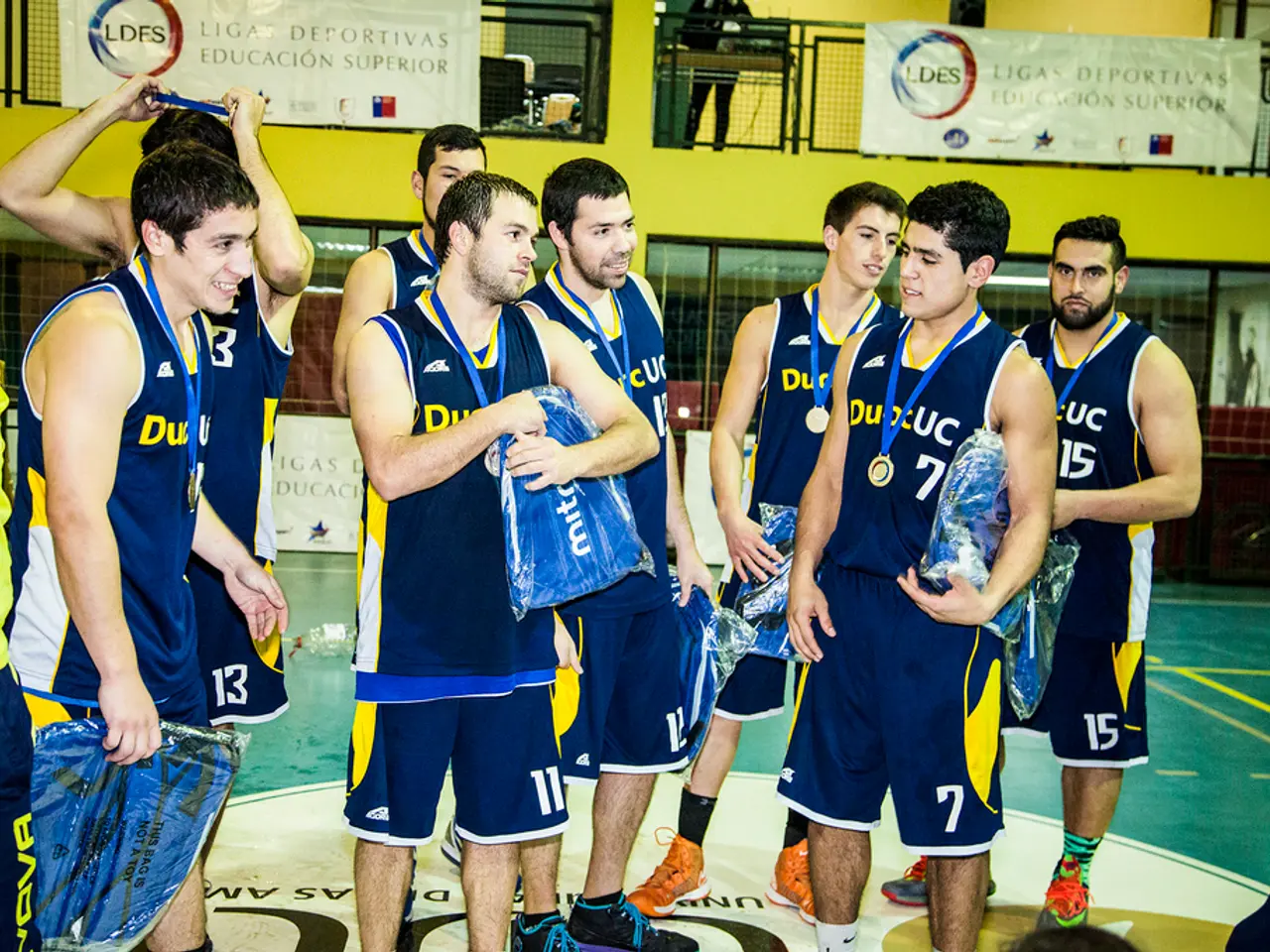China boasts about arms exhibition - Xi aligns with Putin and Kim in military alliance
Headline: World Leaders Gather for Military Parade Marking 80th Anniversary of End of World War II in China
In Beijing, a grand military parade was held to commemorate the 80th anniversary of the end of World War II. Over 10,000 soldiers of the People's Liberation Army participated in the event, showcasing new weapon systems and revisiting a dark chapter in history known as the Chinese People's War of Resistance Against Japanese Aggression.
The parade, titled "Victory of the Chinese People's War of Resistance Against Japanese Aggression," highlighted the struggle China endured during the war, which lasted from 1937 to 1945 and resulted in millions of deaths. The event was attended by several world leaders, including Russian President Vladimir Putin and North Korean leader Kim Jong Un.
Putin and Kim Jong Un had a meeting after the parade, with Putin thanking North Korean soldiers for fighting alongside Russian troops in the recapture of the western Russian region of Kursk from Ukrainian forces. Kim Jong Un's sister, Kim Yo Jong, and his daughter also attended the parade, marking the first officially known trip outside North Korea for the latter.
The parade unveiled new Chinese-made weapons, including a mobile laser for countering drone swarms, a torpedo-shaped underwater drone, and an unmanned patrol boat. The display also featured intercontinental ballistic missiles capable of carrying nuclear warheads and reaching targets in the USA and Europe.
While the parade was a celebration of China's military might, it has been a source of criticism for Beijing, particularly in Taiwan. The fact that the People's Republic did not exist in 1945 is still a reason for criticism, as some argue that Beijing's portrayal of the war era is not entirely accurate.
After Japan's surrender, the civil war between the Nationalists and Communists resumed, with the Communists winning in 1949 and Mao Zedong declaring the People's Republic of China in Beijing. The Nationalists retreated to Taiwan, where they continue to maintain a separate government.
In his speech, Xi Jinping emphasized the need to build the People's Liberation Army into a world-class force to safeguard China's sovereignty. He also called for peace and warned of new dangers, stating that humanity once again stands at the crossroads of peace and war, dialogue and confrontation, win-win cooperation and zero-sum games.
Meanwhile, US President Donald Trump accused Xi of conspiring against the USA, stating that many Americans died for China's victory and glory during World War II and hoping these sacrifices would be honored. The Kremlin countered Trump's accusations, stating that nobody has instigated any conspiracies against the USA.
Despite the controversy and criticism, the military parade in Beijing served as a powerful reminder of China's past struggles and its current military capabilities, as well as the ongoing geopolitical tensions in the region.
Read also:
- Lu Shiow-yen's Challenging Position as Chair of the Chinese Nationalist Party (KMT) Under Scrutiny in Donovan's Analysis
- Confidential Data Protection in Medical Field: Defending Vital Patient Data
- Medical professionals call for RKI to advocate for COVID-19 vaccine distribution
- Transforming the Romanian hospitality sector: Stadio Hospitality Concepts, shifting from culinary spots to iconic adventures








